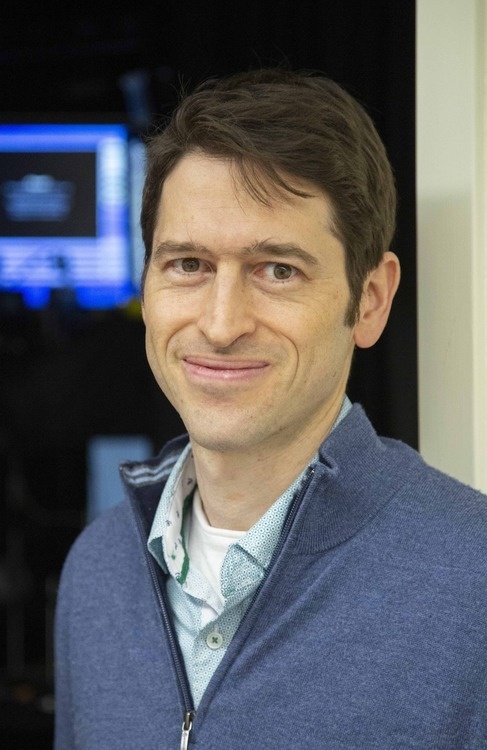
BCS Colloquium Series: Mark Andermann
Description
Talk Title:
Cortical reactivations predict future sensory responses
Abstract:
Many theories of offline memory consolidation posit that the pattern of neurons activated during a salient sensory experience will be faithfully reactivated, thereby stabilizing the entire pattern. However, sensory-evoked patterns are not stable, but instead drift across repeated experiences. To investigate potential roles of reactivations in the stabilization and/or drift of sensory representations, we imaged calcium activity of thousands of excitatory neurons in mouse lateral visual cortex. Presentation of a stimulus resulted in transient, stimulus-specific reactivations during the following minute that were often coupled with hippocampal sharp-wave ripples. These cortical reactivations depended on local circuit activity, as they were abolished by cortical silencing during the preceding stimulus. Surprisingly, reactivations that occurred early in a session systematically differed from preceding activity patterns evoked by the stimulus. These reactivations were more similar to future patterns evoked by the stimulus, thereby predicting within-day and across-day representational drift. In particular, neurons that participated more or less in early reactivations than in stimulus response patterns gradually increased or decreased their stimulus responses later in the session. The rate and content of these reactivations was sufficient to accurately predict the dynamics and context of future changes in stimulus responses as well as the decreasing similarity of cortical population responses to distinct stimuli. We hypothesize that activity patterns during sensory cortical reactivations may contribute to a gradual drift and separation in sensory response patterns, and may thereby enhance sensory discrimination.
Bio:
Mark Andermann grew up in Montreal, Canada. As a son of immigrant parents whose careers were dedicated to the practice of neurology, Mark spent a lot of time at the Montreal Neurological Institute, where a quote from Wilder Penfield challenged visitors: “The problem of neurology is to understand man himself.” Mark received undergraduate training in math and physics at McGill University, and Ph.D. training with Dr. Christopher Moore at MIT and Harvard. He completed postdoctoral training at the Helsinki University of Technology and with Dr. Clay Reid at Harvard Medical School. Mark started his lab in 2012 in the Division of Endocrinology, Diabetes, and Metabolism at Beth Israel Deaconess Medical Center. His lab seeks to understand how the needs of the body bias learning, attention, and imagery towards need-relevant objects. To achieve these goals, the lab employs cellular and subcellular imaging of brain cells in retina, thalamus, cortex, amygdala, hypothalamus, brainstem and choroid plexus across weeks as mice seek food, water, mates, or safety.
This talk is followed by an hour reception with appetizers and beverages in the 3rd floor atrium.
This event is also available by zoom webinar: https://us02web.zoom.us/j/85209187845

